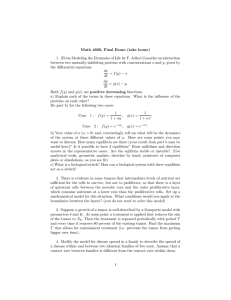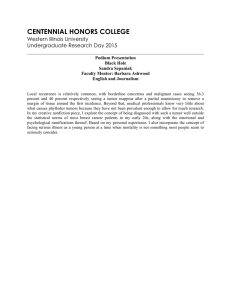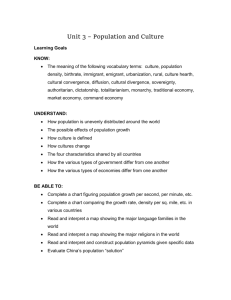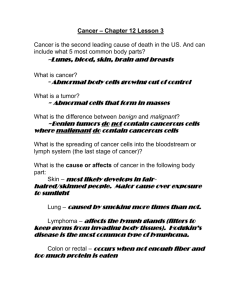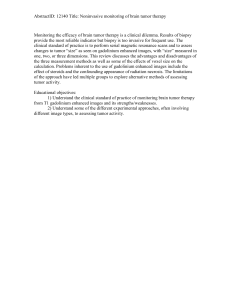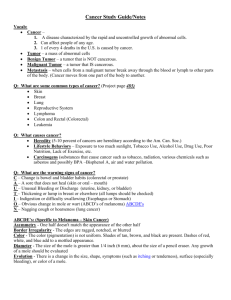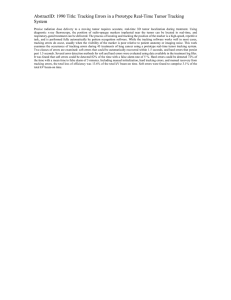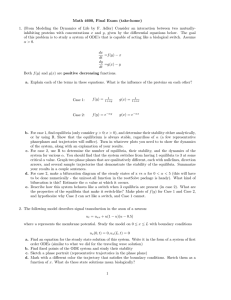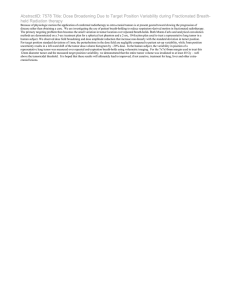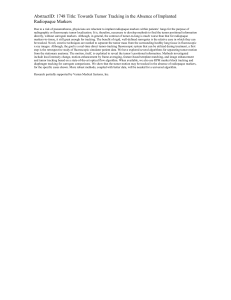Math 5110 Homework 3 Due: Fri Oct. 30 (by 3pm)
advertisement
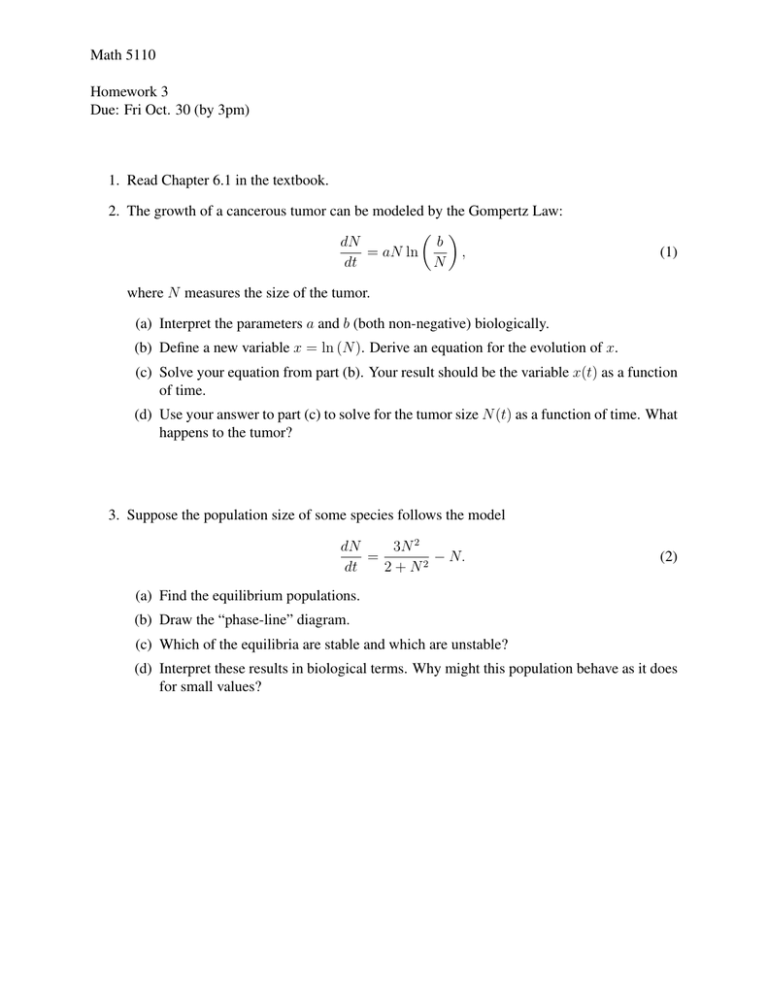
Math 5110 Homework 3 Due: Fri Oct. 30 (by 3pm) 1. Read Chapter 6.1 in the textbook. 2. The growth of a cancerous tumor can be modeled by the Gompertz Law: b dN = aN ln , dt N (1) where N measures the size of the tumor. (a) Interpret the parameters a and b (both non-negative) biologically. (b) Define a new variable x = ln (N ). Derive an equation for the evolution of x. (c) Solve your equation from part (b). Your result should be the variable x(t) as a function of time. (d) Use your answer to part (c) to solve for the tumor size N (t) as a function of time. What happens to the tumor? 3. Suppose the population size of some species follows the model 3N 2 dN = − N. dt 2 + N2 (2) (a) Find the equilibrium populations. (b) Draw the “phase-line” diagram. (c) Which of the equilibria are stable and which are unstable? (d) Interpret these results in biological terms. Why might this population behave as it does for small values? 4. Consider the following model for the population of a single species (denoted u): du u u2 =r 1− u− . dt k 1 + u2 We may interpret γ(u) = r 1 − uk as the (population dependent) growth rate. (3) (a) Use “phase-line” analysis to determine the behavior of this population. (b) Repeat part (a) in the limit of population independent growth (the limit k → ∞). (c) How do the two behaviors differ? Explain why. Interpret this result in with respect to the environment.
